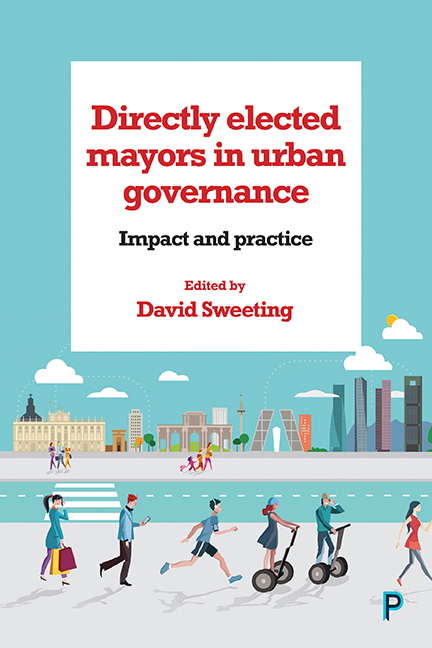twelve - Debating directly elected mayors in the Czech Republic: political games and missing expertise?
Published online by Cambridge University Press: 05 April 2022
Summary
Introduction
The Czech Republic, unlike its near neighbours, does not currently have any directly elected mayors. Recently, the Petr Nečas government of 2010–13 attempted to implement the direct election of mayors in small municipalities in the country in time for the municipal elections in 2014 (Jüptner, 2013: 109–11). However, the reform failed, and the Czech Republic thus remains a Central European outlier, having indirectly elected local political leaders, surrounded by countries that have implemented fully the direct election of mayors (Slovakia, Poland), expanded it (Germany) or facilitated it (Austria) (Jüptner, 2013: 102–4). So, as it is not possible to examine the impacts of the direct election of mayors in the Czech Republic, the aims of this chapter are:
1. to characterise the nature of debates on directly elected mayors in the Czech Republic, define their actors and their roles;
2. to locate the Czech debate on directly elected mayors in a broader European context;to outline the model of direct election proposed, and to present its advantages and disadvantages.
Owing to the lack of a wide range of material on this subject in the Czech Republic this text is somewhat contextual in nature. For European comparison the chapter draws on sources such as a foreign literature and articles, monographs, working papers and – exceptionally – seminar group theses. The analysis of the Czech model utilises in particular two analyses by the Ministry of Interior, rulings of the government, legislative proposals and information from seminars attended by academics and policy, departmental and political officials.
Delimitating the discussion: what it is and – primarily – what it is not
Since the 19th century Czech local government executive structures have been based on executive committees and collective decision making, where groups of elected councillors would make decisions. The roots of the model are based in the Austrian Empire, particularly Austria-Hungary, and an executive model of Czech municipal self-governments largely conforms to an Austrian model in which some federal states implemented the direct elections of mayors (Trauner, 2001). Following the founding of the Czechoslovak Republic in 1918, the collective executive was preserved (Balík, 2009: 46–52; Čopík, 2014: 73–4). When municipal self-government was restored in 1990 after the fall of communism, the same collective executive model was also reinstated.
- Type
- Chapter
- Information
- Directly Elected Mayors in Urban GovernanceImpact and Practice, pp. 201 - 218Publisher: Bristol University PressPrint publication year: 2017



